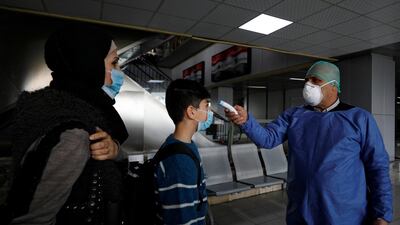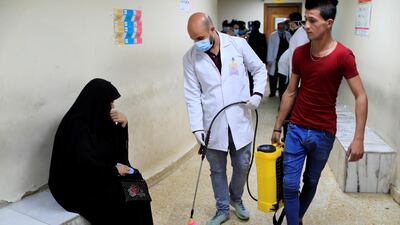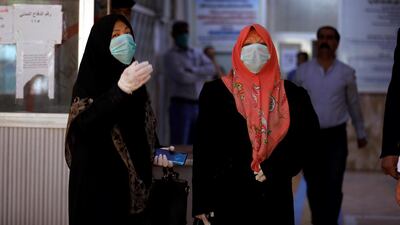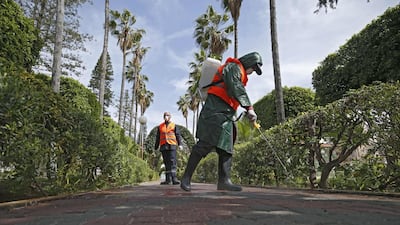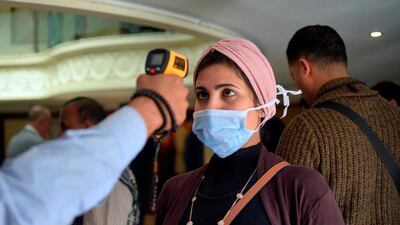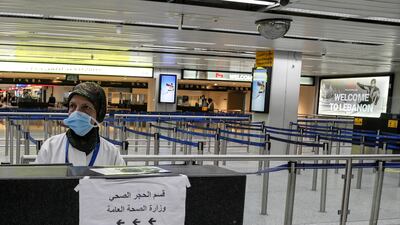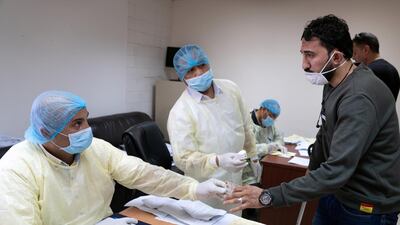Just a few weeks ago, few people had never heard of coronaviruses. Now it seems everyone has a view on the epidemic of Covid-19 cases sweeping the world.
Many believe we are on the brink of a global emergency and are living in fear of experiencing the flu-like symptoms linked to infection.
Many others insist the whole issue has been blown up out of all proportion, and that a small risk to health is being turned into a guaranteed economic disaster.
In reality, both sides of the debate are showing symptoms of the same condition: an inability to cope with uncertainty.
Take the most talked-about number in the current epidemic: the mortality rate for Covid-19 - that is, the proportion of people infected likely to die as a result.
Currently, the World Health Organisation estimates it’s around 3 per cent. In comparison, seasonal influenza typically has a mortality rate well below 0.1 per cent.
If you view the current outbreak in apocalyptic terms, the implications are clear: Covid-19 typically kills 3 out of every 100 people.
And in the last week, it’s emerged that the death-rate in Italy may be considerably higher.
But those who view the threat as exaggerated have been quick to point out this is highly misleading. That’s because the WHO figure represents an average rate, and masks a host of nuances.
The early outbreaks of Covid-19 in China showed that most of the deaths have occurred among the elderly, not the general population.
And as for Italy, the country has the oldest population in Europe, which itself is the continent with the oldest people in the world.
In contrast, the evidence to date suggests that most people will shake off the infection with little trouble.
So are the sceptics right? Are we worrying unnecessarily? Even ignoring the questionable attitude towards the death of the elderly, it’s clear many sceptics are just trying to bolster their preconceptions using uncertain information.
Analysis of early outbreaks show that the supposedly “low-risk” age-groups contain many sub-groups whose risk of death is substantially higher than the average.
These are people with other medical conditions – “co-morbidities” in the jargon – making them especially vulnerable.
They include people with high blood pressure, diabetes and cardiovascular disease. Evidence from the original outbreak in China suggest they may face triple the mortality rate of healthy individuals.
Of course, it’s important to acknowledge the uncertainty surrounding this counter-argument. First, all mortality rates are based on two figures: the number of people with the disease, and the number of those that died.
Getting a reliable figure relies on testing and confirming Covid-19 in a large number of people – and in many countries, that’s still a work in progress.
In any case, mortality rates don’t simply reflect the lethality of the disease – they also depend on factors such as the availability and quality of health-care systems.
Combine that with the different age distribution of nations, and it’s clear that basing grand conclusions either way on current estimates of mortality rates is foolish.
Even so, anyone experiencing the symptoms of Covid-19 – a cough, sore throat, fever and shortness of breath – over the next few weeks could be forgiven for being deeply concerned.
But again, a lack of understanding of how uncertainty works can lead to false conclusions.
The problem this time is that the early signs of Covid-19 infection are similar to those for much more common viral illnesses, such as colds and influenza.
The reality is that if you do start to feel the widely-reported symptoms and haven’t been anywhere near one of the global hotspots like Wuhan, China or northern Italy, chances are you haven’t got Covid-19.
The reason is a phenomenon called the “Base-rate Effect” – and it’s one that sometimes catches out even experts.
Put simply, it’s the result of mixing up two similar-sounding but quite different probabilities.
The first is the chance of having a cough, high temperature and shortness of breath if you’re infected by the coronavirus. From studies of thousands of Covid-19 patients, it’s known that this is very high.
But, crucially, that does not mean the reverse is true: that the chances of having Covid-19 are high if you have those symptoms.
That’s because they also have many other causes. The only way to diagnose Covid-19 reliably is to undergo the test which eliminates these alternative causes.
That doesn’t mean it makes sense to just ignore the symptoms and carry on. It does mean, however, that it makes no sense to automatically assume we’re infected with Covid-19, much less panic that we’re going to die as a result.
Instead, the best course of action is to contact a hospital and talk to doctors there.
This isn’t hypochondria – it’s actually the most rational and responsible response given the uncertainty about Covid-19.
The reality is that the best hope we have in minimising the impact of Covid-19 lies in thinking not only about our own health, but also about that of others.
The latest research suggests infected people are able to spread the virus from the very earliest stages of the disease, when they still feel able to go about their normal business.
Robert Matthews is Visiting Professor of Science at Aston University, Birmingham, UK. His latest book is Chancing It (Profile Books).

